Ready for a Sparkling Pool? Contact Us Today!
Say goodbye to pool maintenance hassles and hello to crystal clear waters with Poseidon Pools & Spas.
Why Knowing Your Pool Volume is Important
Proper chemical treatment
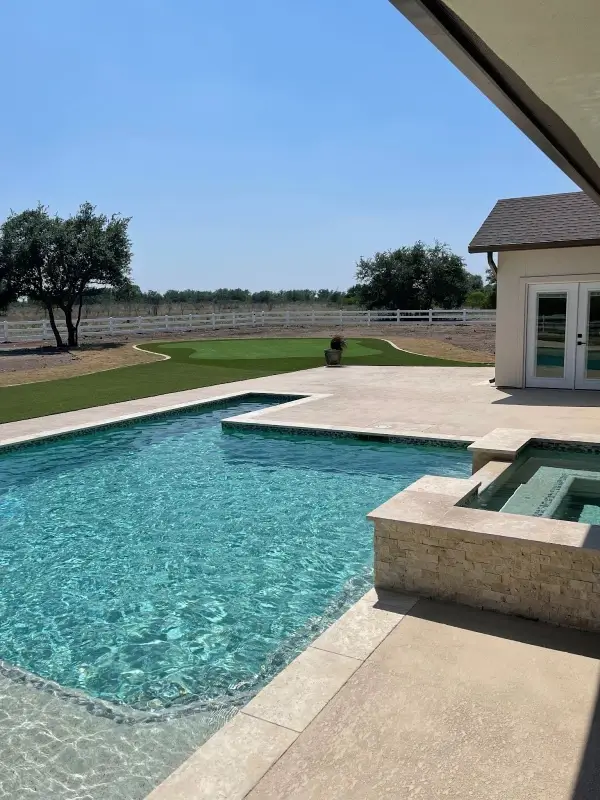
Filtration system sizing
- Get the best circulation rates
- Keep flow rates at ideal levels
- Meet your pool’s turnover requirements
- Choose the right plumbing size
Water and energy costs
The right pump size selection (0.75 HP works best for home pools)
The quickest way to implement heating systems
Smart water replacement strategies
Better chemical usage planning
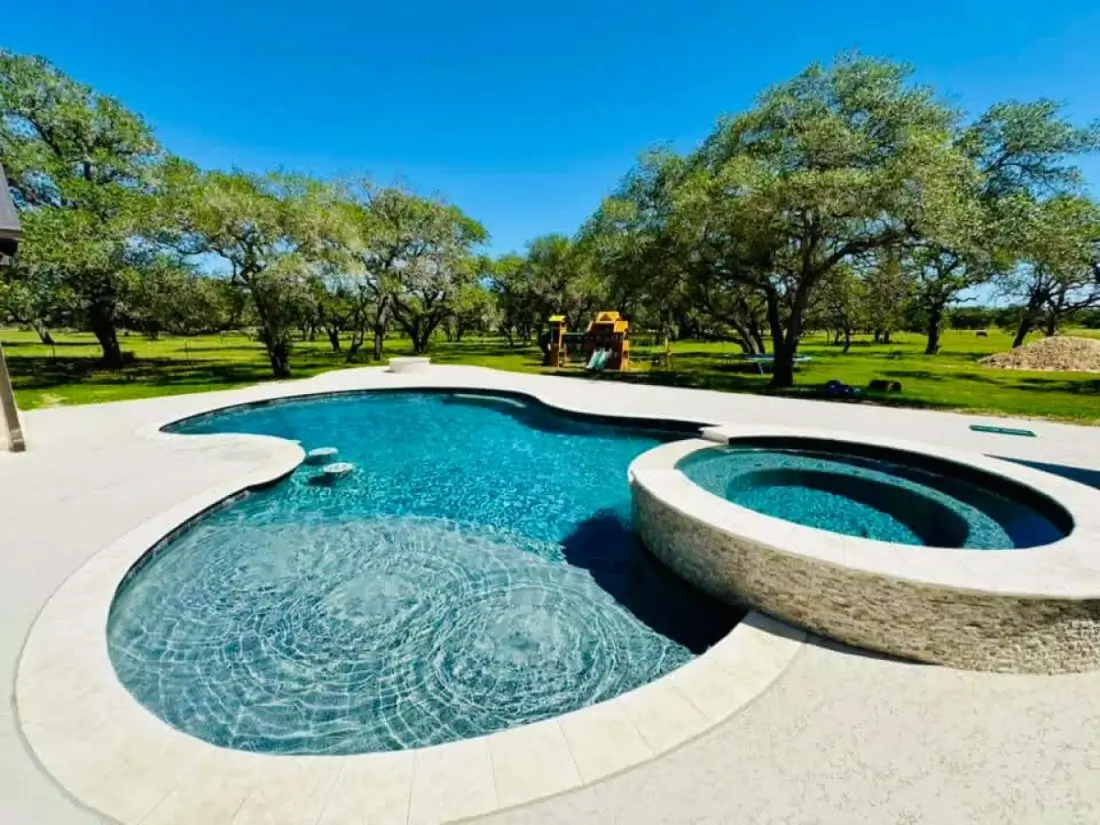
Pool covers cut water makeup needs by 30-50% and reduce chemical use by 35-60%. These benefits depend on knowing your pool’s exact volume. The pool’s temperature makes a big difference. A single degree increase of 1°F drives up costs by 10-30%. This makes volume-based calculations a vital part of expense management.
Ready for a Sparkling Pool? Contact Us Today!
Say goodbye to pool maintenance hassles and hello to crystal clear waters with Poseidon Pools & Spas.
How to Measure Your Pool Dimensions
Length and width for rectangular pools
1. Gather your measuring tools:
50-foot tape measure
Black ink pen
Measurement sheet
Helper (recommended)
Diameter for circular pools
The correct diameter measurement is SUPER IMPORTANT when dealing with circular pools. You need to measure across the widest part through the center point. Take several diameter measurements to ensure you have located the true widest point. The pool’s perimeter divided by 3.14 (pi) serves as an additional verification method to confirm your diameter measurement.
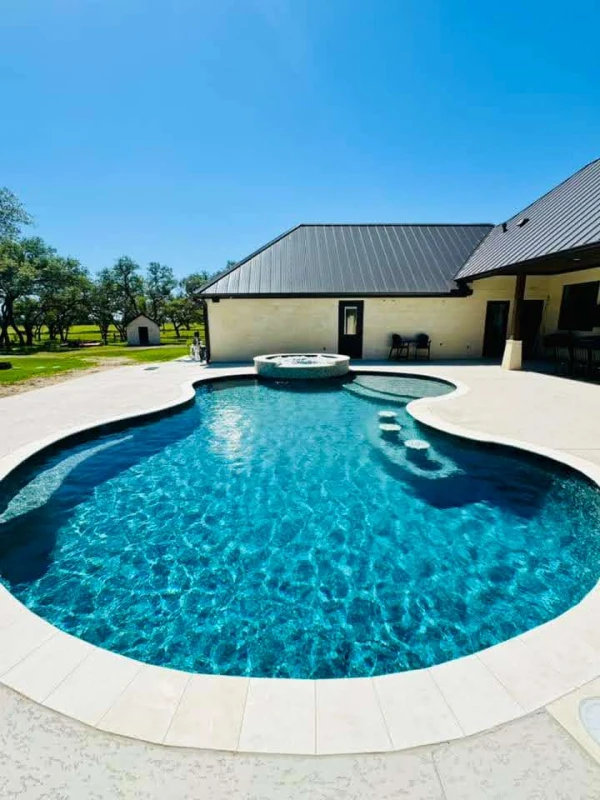
Measuring average depth
Shallow end (3 feet) + Deep end (8 feet) = 11 feet
11 ÷ 2 = 5.5 feet average depth
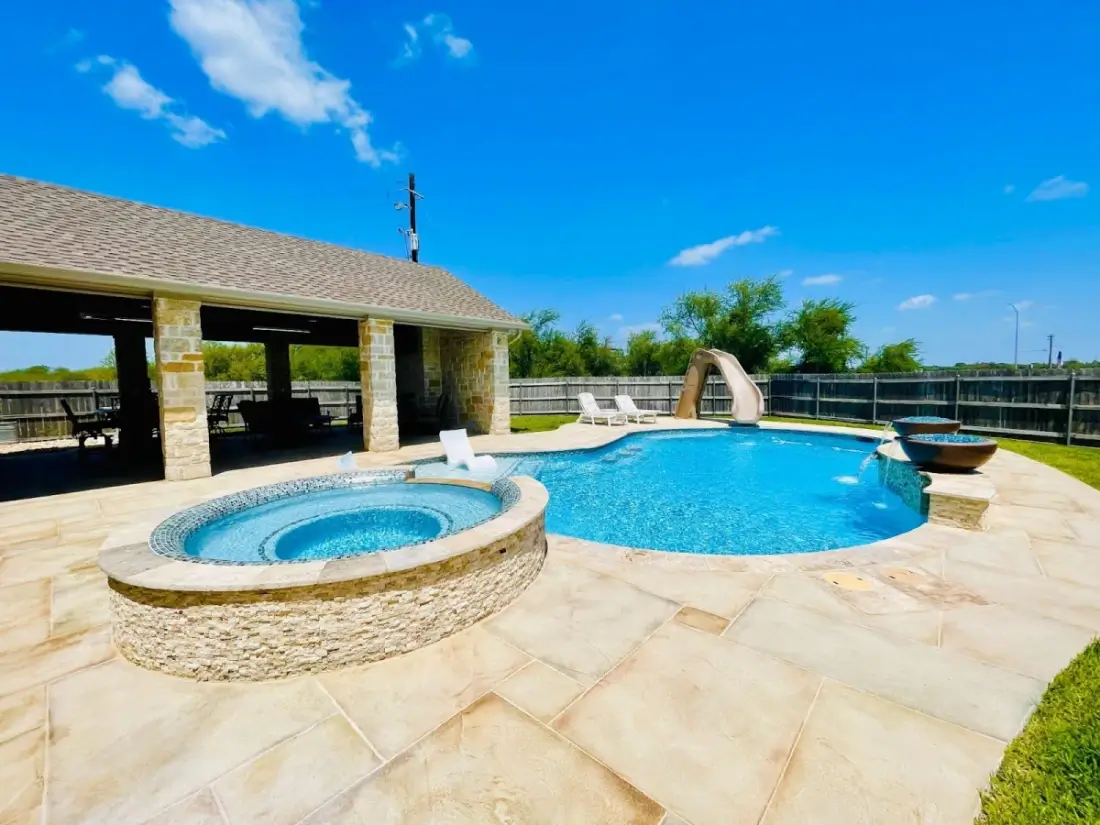
Calculating Pool Volume for Different Shapes
Ready for a Sparkling Pool? Contact Us Today!
Say goodbye to pool maintenance hassles and hello to crystal clear waters with Poseidon Pools & Spas.
Rectangular pool formula
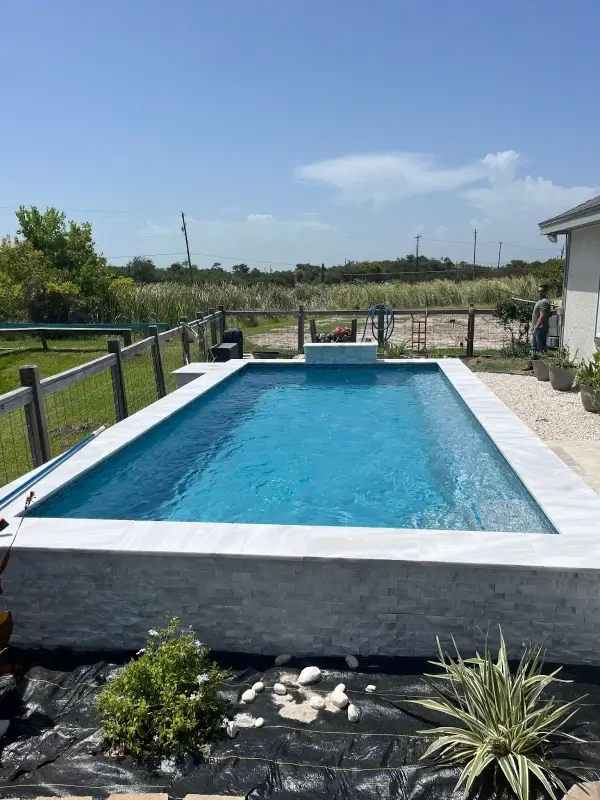
Circular pool formula
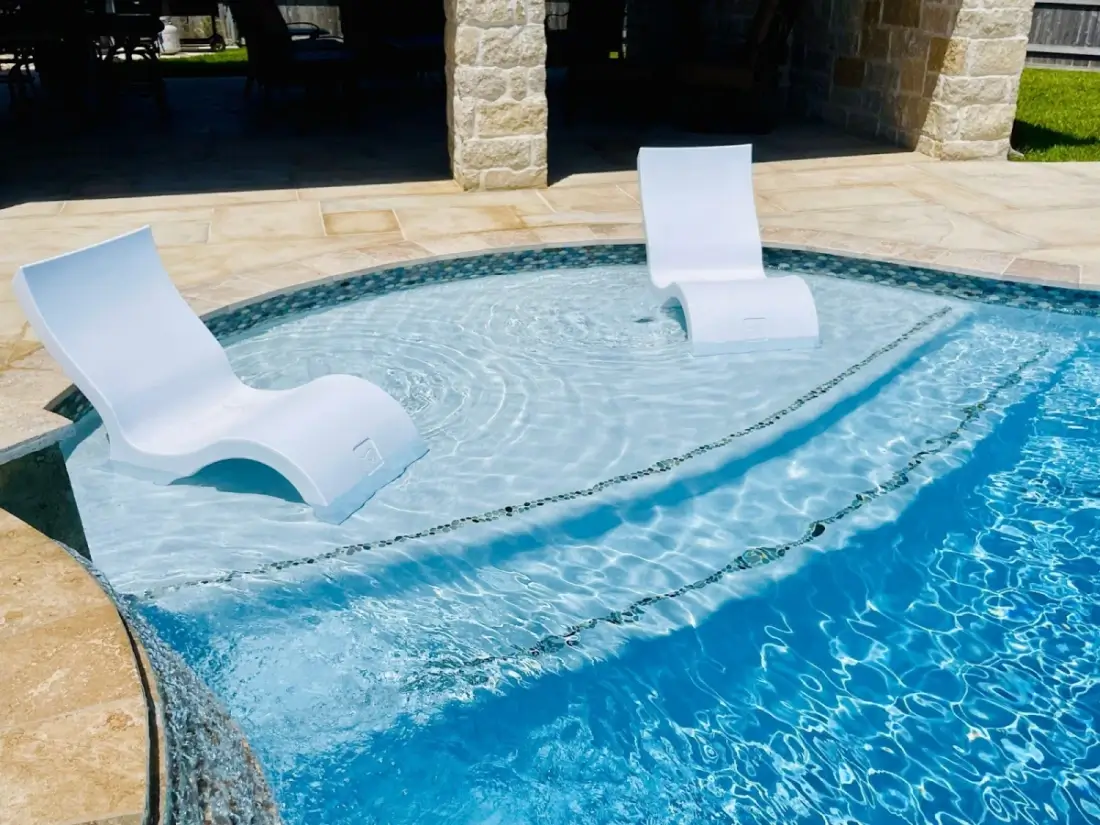
Oval pool formula
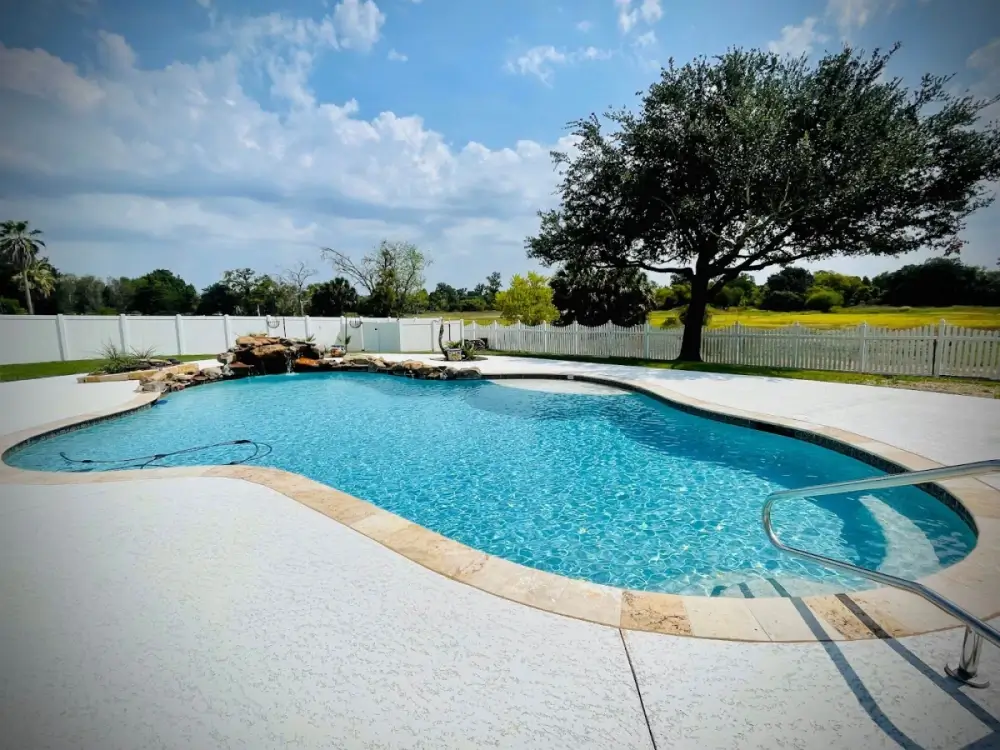
Irregular shapes
The calculation process differs for kidney-shaped or free-form pools.
Identify the widest points (A + B)
Measure the longest length
Multiply total width × length × 0.45
Multiply result × average depth × 7.5
These tips ensure accurate calculations…
Measurements should be rounded to the nearest inch
The waterline serves as the measurement point
Sections with different depths need separate calculations
Online calculators help verify the math
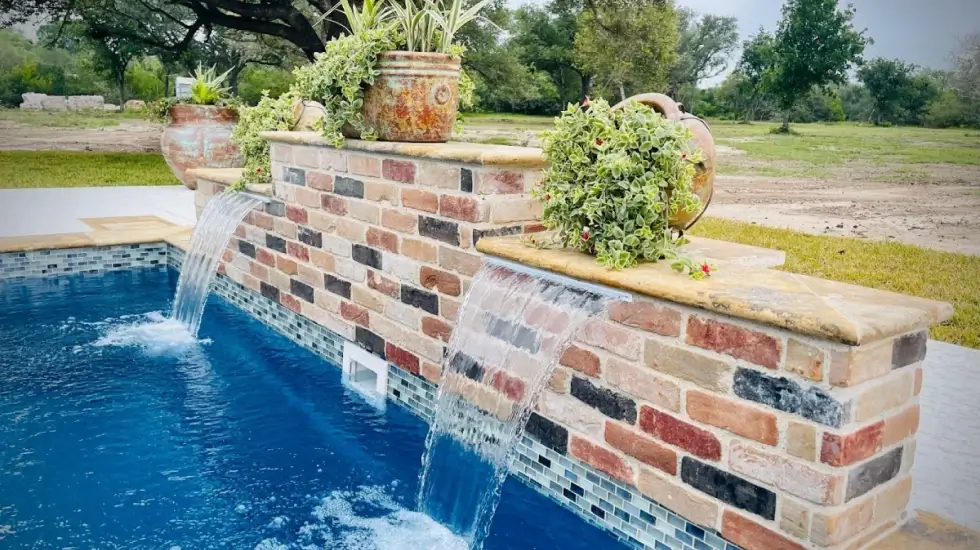
Using Online Pool Volume Calculators
Benefits of online calculators
Online pool volume calculators simplify complex manual calculations!
Instant results that minimize mathematical errors
Automatic conversion between different measurement units
Built-in formulas for pools of all shapes
Knowing how to store calculations to use later
Integration with chemical dosing recommendations
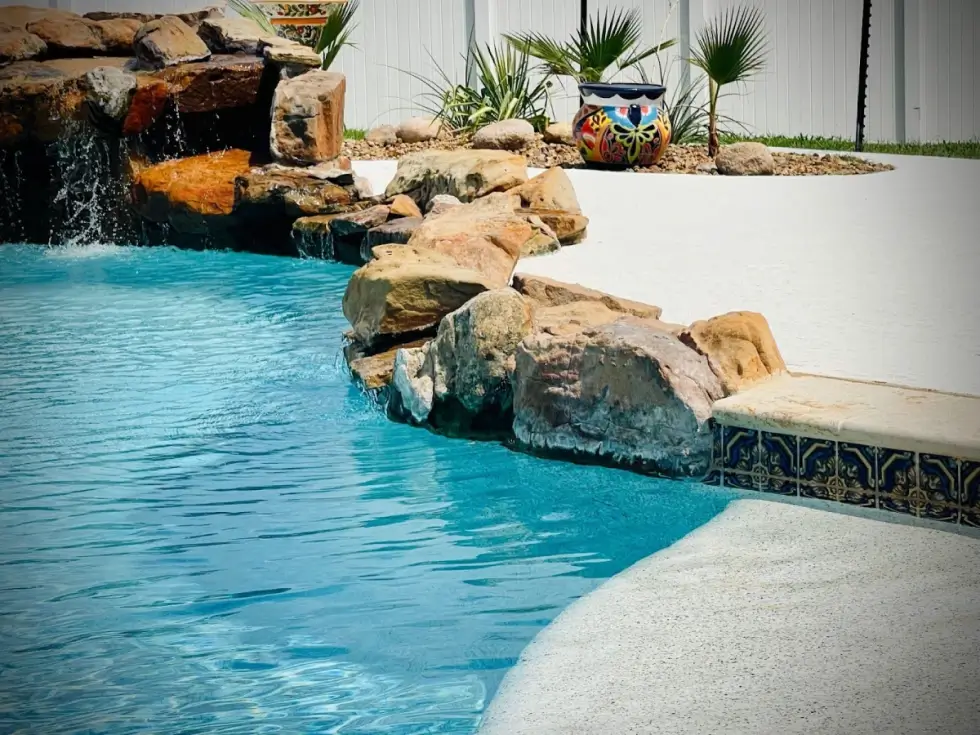
Getting Accurate Pool Measurements
Your pool calculator will give you exact results when you follow the below steps!
Choose your pool’s shape from the options that are accessible to more people
Input your pool’s measurements according to the format
Verify all your numbers carefully
Measure the depth from where the water actually sits
Check your final volume calculations in gallons and cubic feet
Popular pool calculator options
Basic Calculators
Advanced Tools
Multiple section calculations
Variable depth adjustments
Chemical treatment recommendations
Water replacement cost estimates
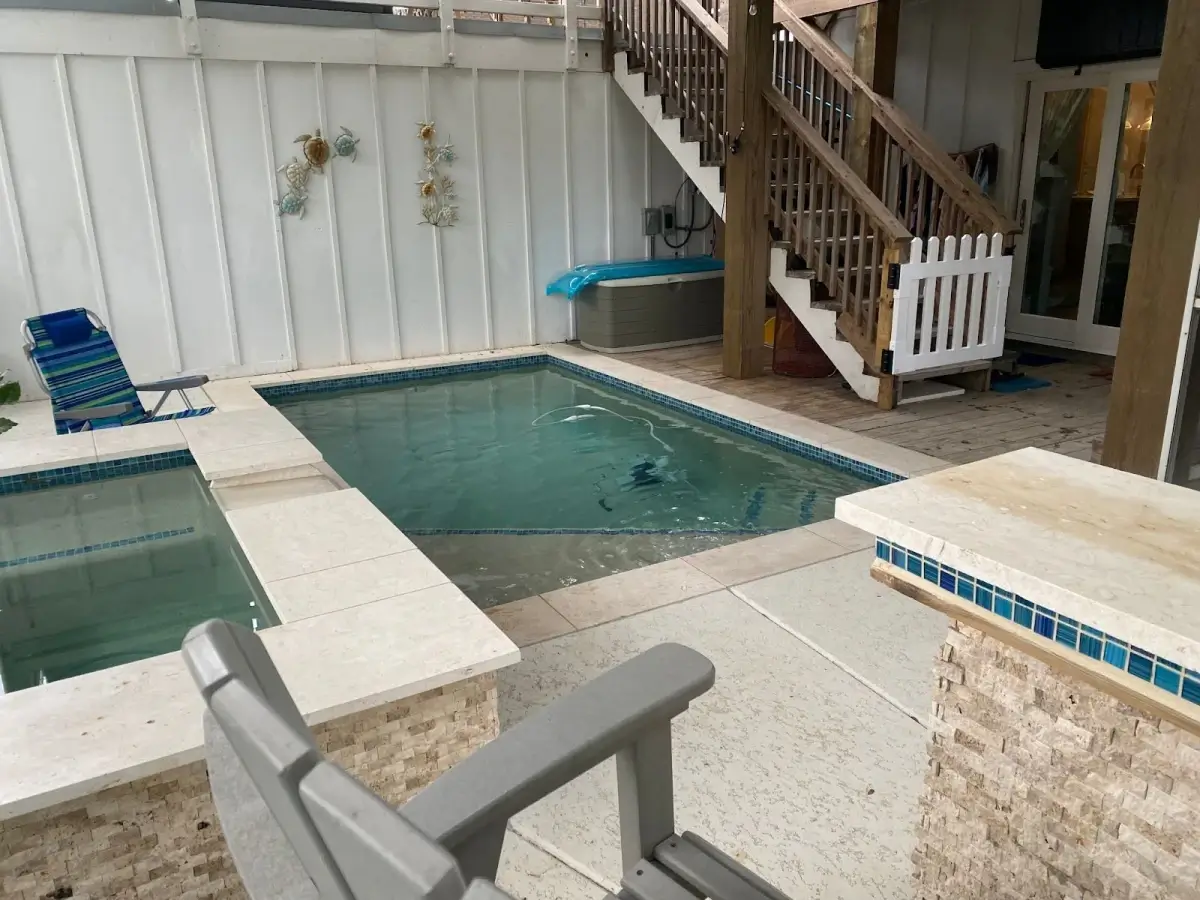
Do We Know How Many Gallons Is Your Pool?
How Many Gallons Is My Pool FAQs
How can I determine the number of gallons in my pool?
What is the method for calculating volume in gallons for rectangular tanks?
How do you calculate the volume of a round pool?
Contact Us Today!
Get In Touch With Poseidon Pools & Spas
Reach out to our company by filling out the form, or call us at
Or get a custom pool quote in 90 seconds by clicking here.


